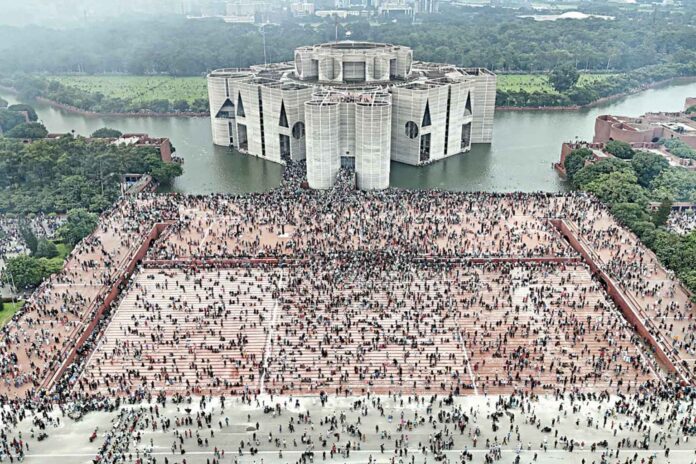
It all began with a single word: “Razakar”, which now signifies the costliest misstep in Bangladesh’s independent history.
In Bangladesh, “Razakar” is an extremely derogatory term and seen as a personal abuse. The word means volunteers but it refers to those persons who supported the Pakistani military’s genocidal operation to squash the 1971 Bangladesh liberation uprising.
Prime Minister Sheikh Hasina, 76, the daughter of the Bangladesh’s founding father and former President Sheikh Mujibur Rahman and the longest-serving female muslim Head of Government in the world, made a critical misstep by calling students protesting in the 2024 job quota reforms as “Razakar”, thereby crossing the red line – Banglaesh’s very own Rubicon.
Within days, Sheikh Hasina’s 15 year rule came crashing down due to the emotions and memories this one word evokes in the hearts of the people of Bangladesh. She was forced to resign and fled Bangladesh in fear of her life.
Razakar: The critical Misstep
Students across Bangladesh have been protesting against the Hasina Government in a mass civil movement known as the ‘quota reform movement’ since June 2024.
Addressing these protests and the media, during a press conference on July 14, Hasina when asked about them dryly remarked, “If the grandchildren of freedom fighters don’t receive [quota] benefits, who will? The grandchildren of Razakars?”
Her comments were like gasoline to fire and ignited violent protests almost immediately.
Students felt her remarks unfairly dismissed their efforts to address the “unfair” quota system in government jobs, which reserved 30 percent of positions for the descendants of freedom fighters of the 1971 liberation movement.
The students began protesting within hours, marching through Dhaka University’s campus, chanting a provocative slogan: “Who are you? I am Razakar.”
In turn, Hasina’s response was heavy-handed, involving her party’s student wing, the Bangladesh Chhatra League (BCL), and the police to quell the protests. This led to a day of violence on July 16, which resulted in six deaths.
Over the next four days, more than 200 people died, the vast majority of them students and normal citizens as Bangladeshi police and BCL armed cadres fired live ammunition.
Rather than condemning the violence, Hasina focused on the damage to government property, such as metro rail and state-owned television buildings.
This only fuelled the anger of the students, who initially demanded a nine-point list of reforms, including Hasina’s unconditional apology and the removal of the minister for [Interior] Home Affairs, Asaduzzaman Khan, as well as other ministers.
Eventualy, the protesters demands narrowed into one single cry: Hasina’s resignation.
Calling the protesters ‘Razakar’ touched a raw nerve and so angered them that it ultimately contributed to her downfall.









